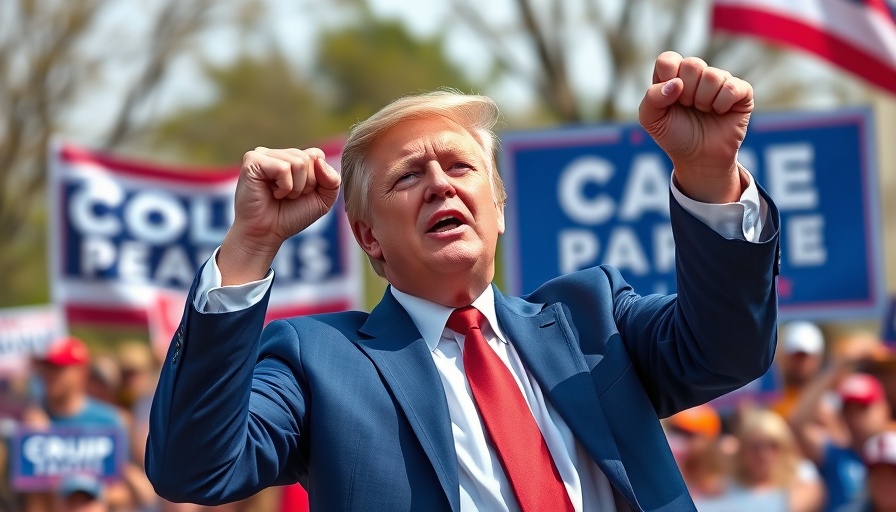
Political Violence in America: A Growing Concern
The recent incident involving Ohio Congressman Max Miller puts a renewed spotlight on the alarming trend of political violence in the United States. Miller reported being forced off the road by a driver, later identified as Feras Hamdan, who allegedly yelled death threats and displayed a Palestinian flag. While Miller's incident is alarming in its own right, it is a part of a larger, concerning pattern of hostility that has proliferated in the political landscape.
Echoes of Recent Attacks
This incident comes shortly after a horrific attack in Minnesota that claimed the lives of state lawmaker Melissa Hortman and her husband, described as politically motivated. According to reports, the assailant had a list of 70 names, signaling just how targeted this violence can be. Such harassment of public officials threatens the fundamentals of democracy, contributing to an increasingly toxic environment. The situation poses significant questions about safety, accountability, and the role of political rhetoric in fanning flames of violence.
The Underlying Issues: Political Rhetoric and Social Division
The harsh language used by various political figures can create a permissive atmosphere for violence, making it easier for individuals to justify aggressive actions against public representatives. As Miller pointed out in his social media post, he believes that "the deranged hatred in this country has grown out of control." Such sentiments reflect a chasm within society, where dialogue has shifted from civil discourse to threats of violence. This underscores the need for leaders to temper their words and promote a healthier, more respectful political dialogue.
What Happens Next: The Legal Process
Feras Hamdan, who has turned himself in, is facing serious charges including aggravated menacing and ethnic intimidation. He was granted a bond of $500,000 and is set to appear in court soon. Legal ramifications for such actions have significant implications not only for the individuals involved but also for the broader context of political engagement. The handling of Hamdan's case could set legal precedents for how future incidents are treated.
Calls for Change: How Society Can Respond
In light of these escalating events, there are several actions that society can take. An emphasis on public safety and protective measures for public officials, advanced training for law enforcement on how to handle political threats, and community engagement to foster dialogue can be effective steps. Moreover, the media must play a role in presenting political news responsibly without amplifying fear or sensationalism.
The Heart of the Matter: Emotional Response and Community Impact
Certainly, the emotional weight of political violence resonates deeply within affected communities. The fear and anxiety stemming from such events can have lasting impacts on public trust in officials and safety within neighborhoods. Citizens may begin to view their political representatives as targets rather than leaders, which undermines community cohesion. Support systems in local areas must be strengthened to mitigate these issues and encourage a proactive, united front against hatred and violence.
The dangerously polarized political climate in the U.S. requires immediate attention and action. As citizens, it is crucial to engage with one another, promote peaceful discourse, and openly advocate for understanding irrespective of differing beliefs. In the face of hatred, communities must strive for unity and resilience.
 Add Row
Add Row  Add
Add 




Write A Comment